Imprisonment and Other Punishments
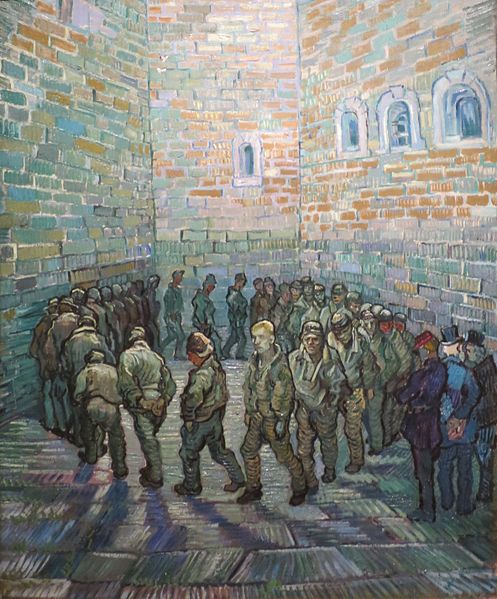
Crime and Punishment
Author Keith Baker
Series Campaign Style
Publisher Atlas Games
Publish date 2003
Imprisonment
As a general rule, you must make a Fortitude save (DC 10) for every week that you spend in a hostile prison. Failure – and a roll of 1 is always a failure – results in the loss of one point of Constitution. This is temporary ability score damage, but you cannot recover the lost points while you remain in the same conditions. If you are released or receive medical attention and better nutrition, you can recover the lost points at the usual rate of one point per day.
Beatings
Judicial beating does not translate well into a ‘damage per stroke’ system. Consider it to be a form of coup de grace; when you’re being beaten you are typically restrained and helpless, so it’s really a question of the level of damage your tormentor wants to inflict.
Being beaten has two effects. The first is loss of hit points; the second is temporary ability damage to your Dexterity score. A successful Fortitude save can reduce or negate these effects. The damage and DC of the saving throw is based on the level of the beating,
as indicated below:
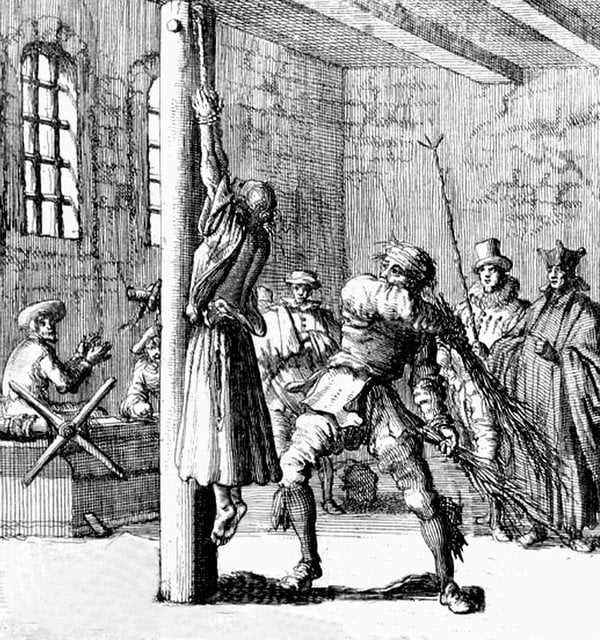
- Light – 20% hit point loss (Fortitude DC 13 halves), 1d4-1 Dexterity loss (Fortitude DC 13 negates)
- Moderate – 40% hit point loss (Fortitude DC 15 halves), 1d4 Dexterity loss (Fortitude DC 14 halves)
- Heavy – 60% hit point loss (Fortitude DC 16 halves), 1d6 Dexterity loss (Fortitude DC 15 halves)
This assumes that you’re being beaten with a cane, scourge, or similar weapon. If your tormentor is unarmed you suffer nonlethal damage instead of normal damage, and the DC of the save against loss of Dexterity is reduced by 3.
Disfigurement
The standard form of disfigurement is branding. A hot iron is used to sear a mark onto your flesh; this inflicts 3 points of damage and leaves a distinctive scar. A brand is usually put in on a prominent location – the face, a hand, the neck, etc. – so that it will be seen by others. A brand is rarely disturbing enough to affect your Charisma score, but depending on the nature of the crime of which it accuses you, it may affect the attitudes of NPCs you interact with. If the crime is serious, the attitude of most honest NPCs will be reduced by at least one category (indifferent to unfriendly, for example). On the other hand, a fellow criminal might actually respond to you more favorably; this could result in an attitude shift in your favor.
In addition to any attitude shift, depending on the situation and nature of your brand you may suffer a circumstance penalty of -1 to -3 on any Bluff, Diplomacy, or Sleight of Hand checks that you make; the exact level of the penalty should be determined by the GM based on your audience.
It’s harder to fast-talk someone when you’ve got ‘Con Artist’ stamped on your forehead, after all.
You can remove a brand using heal, lesser wish, miracle, regeneration, or wish. You can also simply burn the skin around the brand or cut it away; doing this to yourself requires a Will save (DC 15), so you may need a friend to help you out. This causes you to take 1d6+2 points of damage, but you’re free of the brand – though without regeneration or heal you’ll still end up with an unsightly scar. Because a brand can be removed in this manner, mystically advanced societies prefer to use the spell indelible mark.
New Spell: Indelible Mark
Mutilation
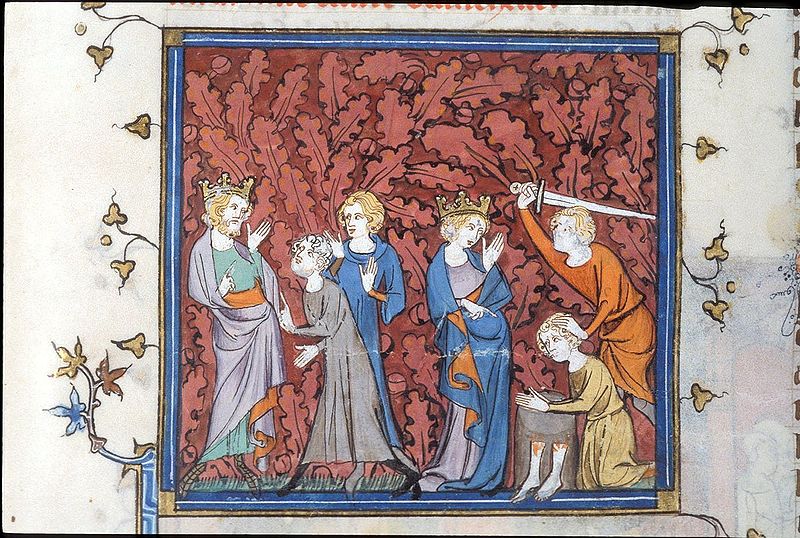
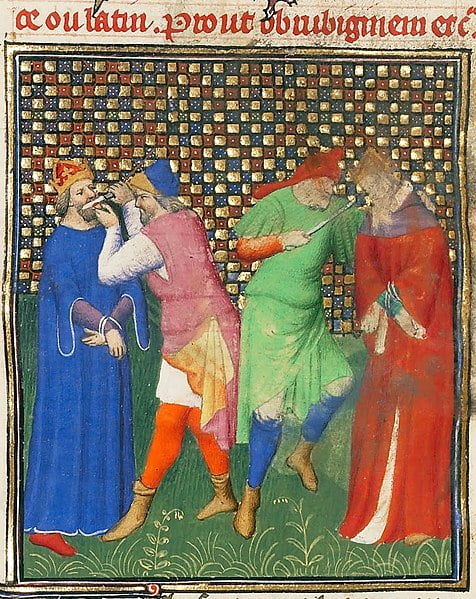
Mutilation as a form of punishment is almost unheard of in good-aligned societies, but can be quite common in evil nations; the tyrant appreciates its value as a deterrent, while the warlord simply enjoys causing pain. In neutral- aligned societies specific types of mutilation may be viewed as a form of just revenge – taking the ‘an eye for an eye’ approach.
Here are a few forms of mutilation. The effects are permanent unless the limb is restored, which can be accomplished through use of miracle, regeneration, or wish.
- Ears – Gives -1 drain to Charisma score, -2 circumstance penalty to all Listen checks.
- Eyes – Gives -1 drain to Charisma score; you suffer all the penalties of the blinded condition.
- Hand – You have a 50% chance to miscast any spell requiring somatic components, in which case the spell is lost. You also have the obvious disadvantage of only having one hand to hold objects. You can get a prosthetic (such as the traditional pirate’s hook), but unless it’s magically animated you’ll take a -4 circumstance penalty on any action involving the hand.
- Fingers – Sometimes fingers or finger joints are removed in place of an entire hand. In this case you only have a 25% chance of miscasting a spell with somatic components, and you take a -2 circumstance penalty to any action involving use of the hand.
- Genitals – A common punishment for rape, this has no quantifiable game effects, but it’s really not a lot of fun. Some societies also use this as a penalty for treason, ensuring that you will not propagate your traitorous blood.
- Nose – Gives -3 drain to Charisma score.
- Tongue – You cannot speak or cast spells with verbal components.
If a society practices mutilation as a standard form of punishment, then members of the society will know the crimes associated with each form of injury; this has the same social effect as having a brand.
Capital Punishment
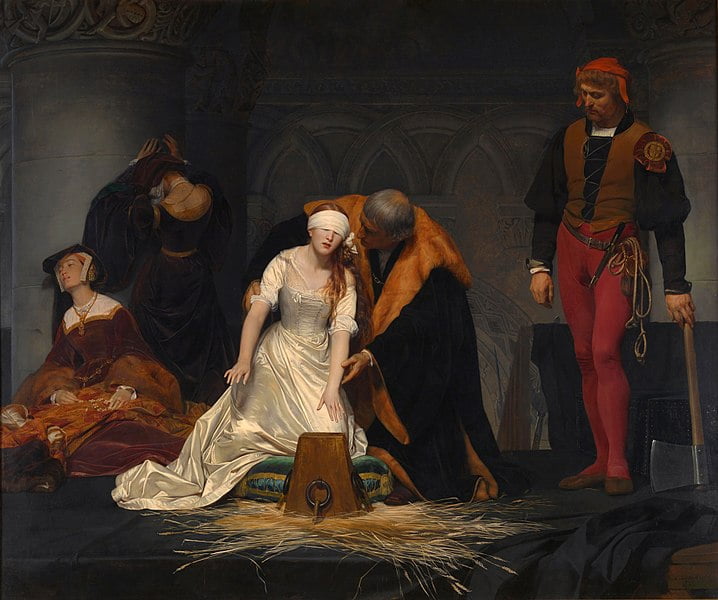
In a good-aligned society, execution will be saved for the most serious crimes ” premeditated murder or serious acts of treason ” and will generally be as quick and painless as possible. As you slide down the scale of alignment, execution becomes increasingly more common; in a chaotic evil nation, it may be the standard form of punishment for challenging the warlord. In addition, the methods of execution will become increasingly more horrific – instead of being hanged or beheaded, you may find that you are scheduled to be drawn and quartered, stoned to death by the public, burned or buried alive, slowly crushed, have your flesh eaten away by slow-acting acid, or condemned to some other charming way passing into the next world. Such executions will generally be public spectacles, emphasizing both the power of the state and the price of challenging the laws of the land. As always, neutral nations tend to stand between the two, although there are always strange extremes. A lawful neutral nation might impose the death sentence for every crime, in an attempt to create a utopian society where no one dares to break the law.
Most of the time, if you’re going to be executed you’re completely helpless and it’s considered a coup de grace. In the case of being burned alive, you might be able to forestall death by using a spell like protection from energy; but assuming that you’re chained, the executioners will probably notice that you aren’t burning and try an alternate tactic (say, shooting you with arrows). If you’re being stoned to death – that is, a crowd is pummelling you with rocks until you die – you will take 3d4 points of damage per round; it’s possible your friends will be able to rescue you before the mob finishes its work. But as a general rule, the best way to survive an execution is to not be the one with your head on the chopping block.
In a nation where magic is common, the victim’s remains may be stored in a reliquary ward to prevent resurrection. Even if the executioners don’t have the means or desire to ever resurrect the victim, they’ll want to make sure that no one else can dig him up and bring him back (although true resurrection will still work). In truly vile nations, the corpse of a criminal may be animated as a zombie and set to work in the community as a guard or laborer – a sinister reminder that the state holds the power of life and death over its subjects.
Magical Retribution
In a society where magic is part of everyday life, it’s only natural to assume that spells will be used to punish criminals. Earlier sections have already discussed the value of geas/quest, taboo or mark of justice in enforcing punishments. Here are a few more examples of mystical retribution:
- Bestow curse could be used as a form of punishment; this could be intended to be a permanent affliction, or else the law may intend to use remove curse after a certain period of time.
- Blindness/deafness would be a more humane way to punish an offender than physical mutilation – not to mention being easier to reverse.
- Energy drain – carrying the potential of permanent level loss – could be used as punishment by powerful wizards or clerics.
- Feeblemind could be seen as a fitting punishment for certain crimes. Insanity is also an option, but someone afflicted with insanity can pose a considerable threat to those around him.
- Plane shift allows a nation to exile a condemned criminal from the world itself; in a theocracy that uses the voice of god system, the justice may believe that it is his divine right to banish the guilty to the abyss.
- Baleful polymorph is a highly effective punishment; the form that the victim is given may be determined by the crime that he has committed. For example, a bandit judged to be a wolf in human form might be given the body of a hart and released into the wild, so he might suffer at the jaws of the wolves. Baleful polymorph, flesh to stone, trap the soul, and imprison can also all be used to create magical prisons.

 Buy me a coffee
Buy me a coffee